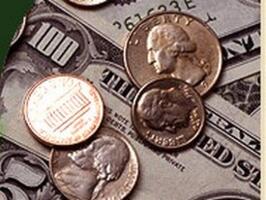What They Told Us: Reviewing Last Week’s Key Polls for July 12, 2008
Over the past week, the Presidential race got a little closer, perceptions of Congress fell a little further, and there was plenty of talk about the economy.

Over the past week, the Presidential race got a little closer, perceptions of Congress fell a little further, and there was plenty of talk about the economy.

Sixty years ago this month, the top story in campaign year 1948 was not the big poll lead of Republican nominee Thomas Dewey or the plight of President Harry Truman. It was the Berlin airlift.

Want to fix an election? No, I'm not proposing any Election Day shenanigans, but rather some preventive maintenance for a very old machine.

In a recent Crystal Ball article , Michael Baudinet of the University of Virginia Center for Politics argued that despite a very difficult national political environment for Republicans, John McCain has a good chance of winning the 2008 presidential election because he enjoys one key advantage over his Democratic rival, Barack Obama: McCain clinched his party's nomination three months earlier than Obama.

Rasmussen Markets data on Friday morning shows that Hillary Clinton is given a 16% chance of becoming her party’s Vice-Presidential nominee. Kansas Governor Kathleen Sebelius is a close second at 15% and Indiana Senator Evan Bayh is the only other Democrat to reach double digits at 12%.

The Discover U.S. Spending Monitor fell nearly a point in June to 85.9, as consumers struggled with rising prices for essentials and continued to lose confidence in the nation’s economy. Economic confidence hit a new Monitor low, falling in June to a level that is nearly 30 points lower than a year ago.

Nearly three out of five Americans (58%) say cutting government spending is more important than balancing the budget, and 43% think such spending cuts will help the struggling U.S. economy.

In the wake of recent missile tests, 71% of American voters say that Iran represents a serious threat to the United States and 82% believe that nation is a threat to Israel.

Nobody now knows the exact contours of the November 4th Electoral College map. Nobody will know it until after the polls have closed. But except for the guessing game about the vice presidential nominations, there's no greater fun to be had in July.

Watching liberals grope for first aid as Barack Obama does an about-face on their most cherished issues, one recalls a scene from the 1950 movie "All About Eve."

"I would say he was pretty underwhelming," said Lawyer Gus several days after he and some 200 other big-money supporters of Hillary Clinton's failed presidential campaign met with the victor, Barack Obama, in Washington on June 26. Lawyer Gus is a longtime Democratic activist, who will support and contribute to Obama as the party's nominee, but will not be enthusiastic about it.

As the Senate inches toward passage of a $300 billion bill to help homeowners facing foreclosure, a new Rasmussen Reports national survey shows that only 21% of voters think the federal government should provide such assistance.

The list of issues on which Barack Obama has flipped now that the primaries are over is long and growing rapidly.

Barack Obama said yesterday that “instead of worrying about whether immigrants can learn English,” Americans “need to make sure your child can speak Spanish.” A national telephone survey conducted last month by Rasmussen Reports found that U.S. voters overwhelmingly disagree with the presumptive Democratic presidential nominee.

Going strictly by the numbers, the biggest perceived difference between Barack Obama and John McCain can be found on the issue of Iraq.

Democrats continue to lead Republicans by double-digits in the Rasmussen Reports generic congressional ballot. When given the choice, 47% of voters nationwide would vote for their district’s Democratic candidate, while 34% would choose their Republican candidate.

Seven out of 10 Americans (70%) think a balanced budget is good for the economy, but nearly as many (64%) believe it unlikely that John McCain can achieve such a budget by 2013 as he has promised.

Voters continue to believe that tax cuts are good for the economy and tax hikes are bad, but for many that’s not the most important aspect of tax policy.

The percentage of voters who give Congress good or excellent ratings has fallen to single digits for the first time in Rasmussen Reports tracking history. This month, just 9% say Congress is doing a good or excellent job. Most voters (52%) say Congress is doing a poor job, which ties the record high in that dubious category.

Democratic presidential candidate Barack Obama has done a far more effective job than Republican John McCain in recent weeks moving himself to the middle in the minds of voters, according to the latest Rasmussen Reports national telephone surveys.